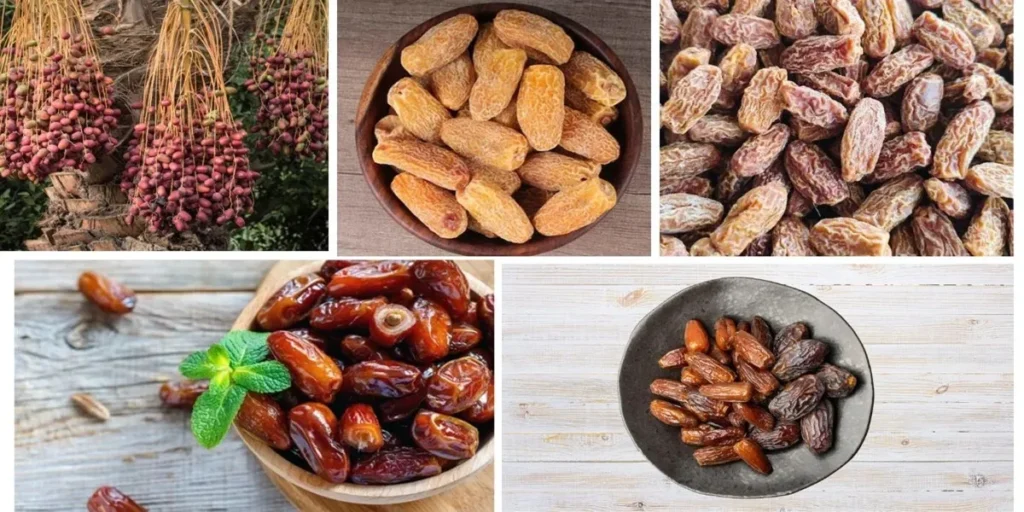Few fruits carry the cultural, nutritional, and ecological significance of date fruits. For centuries, they have been a staple in Middle Eastern diets and are now gaining global recognition as a natural superfood. Today, one of the most important discussions surrounding dates is the contrast between organic and conventional varieties. Organic date fruits are often praised for their environmentally friendly cultivation, absence of synthetic pesticides, and perceived higher antioxidant levels, while conventional dates remain vital for large-scale production and global food security.
Scientific studies highlight differences in nutrient density, pesticide residues, and farming practices that influence both human health and environmental sustainability. Beyond nutrition, consumer preferences are increasingly shaped by values such as transparency, ecological impact, and farming ethics. Understanding these distinctions is not only essential for health-conscious consumers but also for growers and exporters navigating international markets.
In this article, we will explore the unique properties, health benefits, and farming practices of organic versus conventional date fruits, offering readers a clear, evidence-based comparison. Stay with us to uncover how science, sustainability, and consumer choice shape the future of date fruit markets worldwide.
Introduction: Why the Organic vs Conventional Debate Matters in Date Fruit Trade
The global trade of date fruits has transformed significantly in recent years, reflecting a larger debate within the wider Dried Fruits industry: should consumers and producers prioritize organic farming or continue relying on conventional methods? This is not simply a marketing distinction; it is a fundamental question that touches health, sustainability, and consumer trust. Organic date fruits are cultivated without synthetic pesticides and chemical fertilizers, offering buyers the perception of safer consumption and more eco-friendly production. Conventional dates, however, remain essential for feeding growing populations, especially in regions where high-yield farming ensures stability of supply.
Scientific discussions and international trade reports consistently show that consumer preferences are shifting toward healthier and more transparent food systems. Retailers and exporters must therefore adapt to evolving buyer expectations. Organic certification, traceability, and sustainable farming practices are no longer optional—they are becoming key requirements for entering premium global markets. By understanding this debate, stakeholders can better align their strategies with both scientific realities and consumer values. The following sections will explore nutritional science, environmental impacts, market trends, and certification standards to provide a balanced and evidence-based comparison of organic versus conventional date fruits.
Nutritional Science: Do Organic Date Fruits Offer More Health Benefits?
Nutrition is at the heart of the debate between organic and conventional date fruits, and research increasingly focuses on whether cultivation methods influence their health benefits. Organic dates are often linked to higher antioxidant activity and lower levels of pesticide residues, thanks to soil-based farming practices and natural pest control methods. Conventional dates, while equally rich in essential nutrients like potassium, magnesium, and dietary fiber, may carry trace amounts of agrochemicals depending on farming conditions and post-harvest handling.
Studies published in food science journals suggest that antioxidants such as flavonoids and phenolic compounds can be more abundant in organically grown fruits. These compounds play a crucial role in reducing oxidative stress, supporting cardiovascular health, and boosting immunity. However, conventional farming maintains consistency in yield, making these fruits more widely accessible.
For businesses, especially large-scale agricultural investors such as pishva holding, the challenge lies in balancing nutrition-focused consumer demand with practical realities of production. As buyers become more educated, the expectation is clear: nutritional transparency and scientific validation matter. Ultimately, both organic and conventional dates provide important health benefits, but organic farming may offer an edge in meeting the rising demand for natural, residue-free foods.
Sustainability and Farming Practices: Environmental Impact of Organic vs Conventional Systems
The environmental impact of date farming is a crucial factor shaping global preferences for organic versus conventional systems. Organic farming practices prioritize soil health, biodiversity, and reduced reliance on synthetic inputs. Farmers often use compost, bio-fertilizers, and integrated pest management to maintain healthy plantations. This approach not only lowers chemical contamination but also supports long-term soil fertility, a critical issue in arid regions where dates are cultivated.
Conventional farming, on the other hand, has been instrumental in achieving higher yields through mechanization, fertilizers, and pesticides. While it ensures global availability, its drawbacks include soil degradation, water pollution, and reduced biodiversity if not managed responsibly. Water consumption is another key difference: organic systems frequently adopt efficient drip irrigation and mulching, while conventional practices sometimes rely on more resource-intensive irrigation methods.
Sustainability reports emphasize that future farming models must combine the strengths of both systems. Regenerative practices, carbon-neutral strategies, and eco-certifications are reshaping the landscape of date production. By adopting these methods, producers can meet both environmental targets and consumer expectations. The shift toward sustainability is not just a trend but a necessity, as global food systems face increasing pressure from climate change, water scarcity, and shifting consumer priorities.
Global Market Trends: Demand Shifts and Buyer Preferences in 2025
The global market for date fruits is evolving rapidly, with a clear shift in buyer preferences toward organic produce. In Europe and North America, consumers are increasingly health-conscious, seeking foods free from synthetic residues and aligned with sustainability goals. Organic dates are positioned as premium products in retail chains, health food stores, and online platforms, supported by strong marketing narratives around wellness and environmental responsibility.
However, conventional dates still dominate in price-sensitive markets, especially across Asia and Africa, where affordability and availability are critical factors. According to international trade statistics, demand for dates overall continues to rise, but segmentation between organic and conventional is becoming more pronounced. Buyers are not only influenced by health benefits but also by branding, traceability, and ethical farming stories.
Looking ahead to 2025, reports suggest that global demand for organic dates will expand at a faster pace than conventional, driven by rising middle-class consumers and policy incentives promoting sustainable agriculture. Producers who can align with these expectations through certifications, transparent supply chains, and strong storytelling will secure competitive advantages. The future of the market lies in responding to buyer values while ensuring consistent quality and supply across both categories.
Certifications and Standards: What Buyers Look for Beyond the Label
In the competitive world of date fruit exports, certifications and international standards have become decisive factors in building consumer trust. Organic certification, whether through USDA Organic, EU Organic, or regional equivalents, assures buyers that farming practices meet strict requirements for pesticide use, soil management, and sustainability. However, buyers increasingly expect more than just an organic label.
GlobalG.A.P, ISO standards, and food safety certifications such as HACCP play a critical role in ensuring product safety, traceability, and compliance with international regulations. In markets like Europe and the GCC, traceability and transparency are no longer optional; they are prerequisites for entry. Emerging technologies such as blockchain and smart labeling are further transforming buyer expectations by allowing consumers to track products from farm to table.
For exporters, meeting these certification requirements is not only about accessing high-value markets but also about differentiation. Buyers prioritize suppliers who demonstrate commitment to sustainability, safety, and ethical sourcing. This trend emphasizes that certifications are not static achievements—they are dynamic signals of trust, quality, and long-term business credibility. Producers who invest in comprehensive certification strategies will stand out in an increasingly competitive global marketplace.
Price Dynamics: Why Organic Dates Command Premiums and Who Pays for Them
Organic dates consistently command premium value in international markets because their production involves stricter farming standards, limited use of chemical inputs, and costly certification processes. Farmers must rely on natural fertilizers, biological pest control, and sustainable irrigation, all of which require more labor and monitoring compared to conventional systems. Additionally, certification and audits add further expenses, raising the overall cost of production.
The premiums are generally absorbed by health-conscious consumer groups who are motivated by sustainability, wellness, and ethical farming. In Europe, North America, and parts of the Middle East, organic date fruits are perceived as superior products aligned with eco-friendly lifestyles. These buyers are not just paying for nutrition but also for the assurance of clean farming practices and traceability. Meanwhile, institutional buyers such as wellness retailers and high-end e-commerce platforms also play a significant role in driving demand.
In contrast, conventional dates remain crucial for price-sensitive populations where affordability is the main priority. This creates a dual market: premium organic dates for niche consumers and conventional dates for mass markets. Understanding this dynamic helps exporters and producers identify their target segments and adapt strategies accordingly.
Supply Chain & Export Challenges: Organic vs Conventional Logistics
The supply chain for organic dates is far more sensitive than for conventional ones, primarily because of the strict regulations governing certification and handling. Organic products must be carefully segregated during harvesting, packaging, and transport to prevent contamination from non-organic sources. This increases the complexity of logistics and often requires specialized facilities and documentation. Cold chain management becomes critical, especially for fresh or semi-dry varieties, as improper handling can compromise quality and certification status.
Exporters also face stricter import regulations in markets like the EU and the United States, where organic verification is routinely audited at the border. Any discrepancy in documentation or traceability can lead to shipment rejection. By contrast, conventional dates, while still subject to food safety standards, face fewer logistical restrictions and can be distributed with greater flexibility.
Another challenge is maintaining shelf life without synthetic preservatives. Organic exporters must rely on advanced storage technologies such as modified atmosphere packaging to extend freshness. These added steps highlight why organic supply chains require more investment, planning, and compliance compared to conventional ones. Success depends on building transparent, well-monitored systems that reassure buyers of authenticity and consistent quality.
Buyer Psychology: Why Some Consumers Still Choose Conventional Dates
Despite the rising popularity of organic food, many consumers continue to purchase conventional dates due to psychological, cultural, and practical factors. Price remains the most influential driver, especially in emerging markets where affordability outweighs concerns about farming practices. For many buyers, dates are a staple food, and choosing conventional options ensures reliable access at scale.
Another factor is trust and familiarity. Some consumers remain skeptical about the authenticity of organic labels, particularly in regions where counterfeit certifications exist. In these cases, conventional dates are viewed as the “safe choice” because they are widely available, supported by long-established trade networks, and often associated with cultural traditions.
Taste perception also influences psychology. While scientific studies show minimal difference, some consumers report preferring the texture or sweetness of conventional varieties they have consumed for generations. Availability is another key issue: in many retail environments, conventional dates dominate shelves, leaving fewer opportunities for buyers to switch.
Ultimately, consumer psychology reflects more than nutritional awareness—it blends affordability, trust, cultural habits, and accessibility. Understanding these motivations helps producers and marketers design better strategies, either by addressing doubts about organic authenticity or by ensuring conventional products maintain strong relevance in global markets.

Case Studies: Leading Exporters Driving the Organic Transition
Several exporters across the Middle East, North Africa, and North America are playing a key role in driving the organic date fruit transition. In Tunisia and Morocco, cooperatives have successfully shifted to certified organic production, gaining access to premium markets in Europe. These cooperatives highlight how small and medium growers can achieve global competitiveness by adopting sustainable practices and pooling resources for certification.
In Saudi Arabia and the UAE, government-backed initiatives are supporting large-scale organic conversion, particularly targeting international trade fairs and high-value exports. These programs emphasize branding, traceability, and showcasing dates as part of a sustainable agricultural identity. California has also emerged as a leader, with organic Medjool producers investing heavily in advanced irrigation, eco-friendly pest management, and blockchain-based supply chain verification.
A notable example comes from exporters who integrate sustainability storytelling into marketing strategies. By highlighting water conservation, biodiversity protection, and ethical labor practices, they create added value beyond nutrition. These case studies demonstrate that organic success is not limited to product quality—it also depends on strategic branding, certification, and transparent communication. The experiences of leading exporters serve as models for others seeking to navigate the organic shift in global date fruit trade.
Concluding Title: Organic vs Conventional Date Fruits: A Balanced Perspective for Modern Consumers
The debate between organic and conventional date fruits goes far beyond a simple label—it reflects deeper questions about health, sustainability, and consumer trust. Organic dates provide clear benefits in terms of lower chemical exposure, improved soil health, and alignment with eco-friendly lifestyles. On the other hand, conventional farming ensures greater availability, stable yields, and resilience in global supply chains, supporting food security in regions where dates are a dietary staple.
Scientific research confirms that while both types deliver essential nutrients such as fiber, potassium, and natural sugars for energy, organic dates may have an edge in antioxidant content due to cultivation methods. However, consumer preference is often shaped by individual priorities: some value sustainability and farming ethics, while others focus on accessibility and familiarity.
Ultimately, the choice between organic and conventional dates is not about superiority but about balance. By understanding the distinct benefits of each, consumers can make informed decisions that align with both personal health goals and global sustainability efforts.




